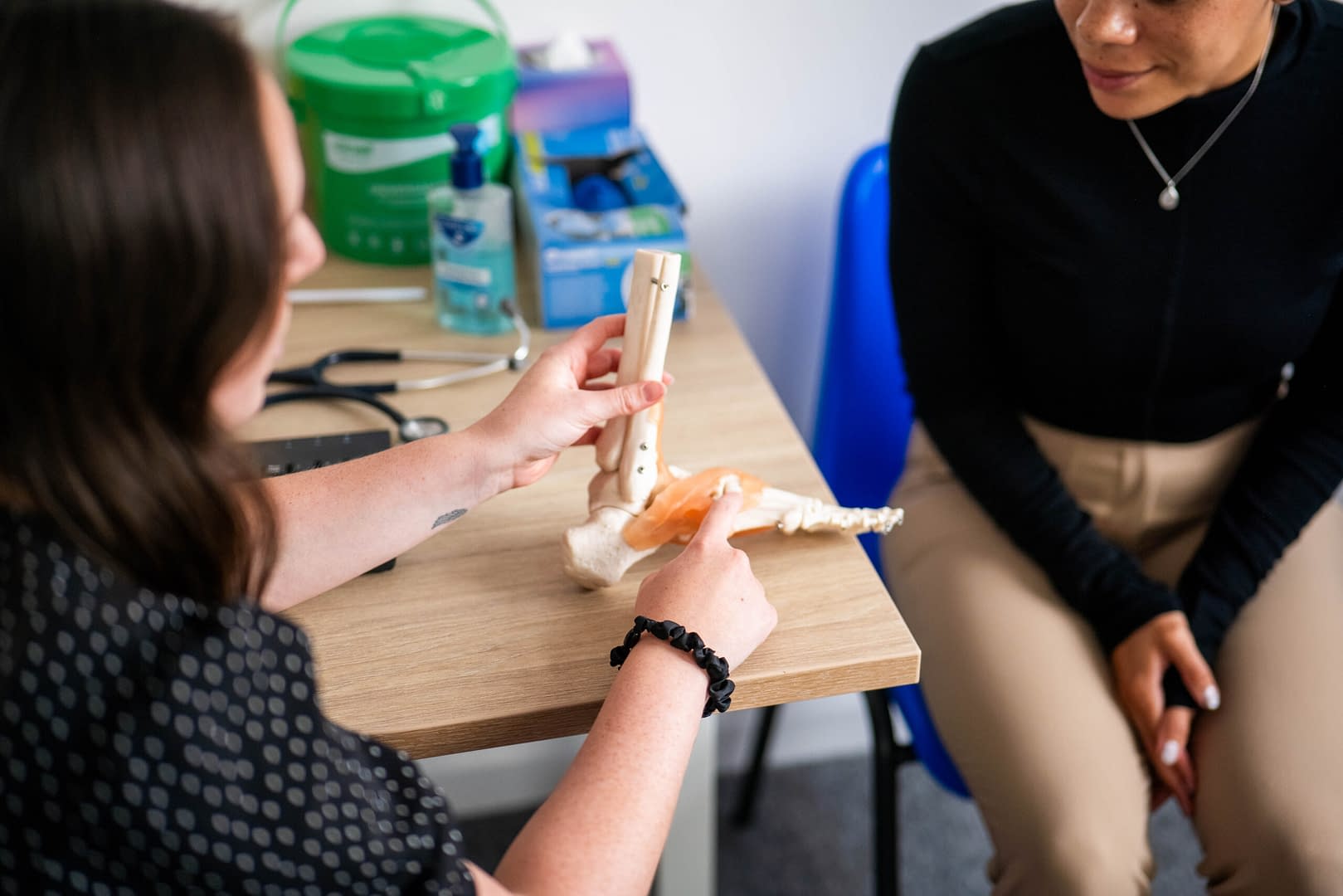The integration of expert musculoskeletal (MSK) physiotherapists in GP surgeries has significantly transformed primary care in recent years. This model aims to alleviate the pressure on general practitioners (GPs) by providing specialised care for MSK issues, which constitute a significant portion of primary care visits. By addressing these concerns effectively, first contact physiotherapy (FCP) services not only enhance patient care but also streamline operations within GP practices.
The Evolution of First Contact Physio Services
The concept of having expert MSK physiotherapists in GP surgeries is not new. There have been trials at the local practice level and at the historic Clinical Commissioning Group (CCG) level for many years, predating the NHS Long Term Plan published in 2019. The principles behind these early trials were to reduce the MSK pressure on GP practice clinical staff by having expert MSK clinicians working alongside GPs, nurses, and other clinical staff within primary care teams.
NHS England’s Long-Term Plan for Primary Care
In 2019, NHS England published the Long-Term Plan for primary care. The plan encouraged GP practices to collaborate by forming Primary Care Networks (PCNs). This would allow them to share resources and provide a wider range of services at a local level, including extended hours. This plan also included the Additional Roles Reimbursement Scheme (ARRS), which introduced new clinical and non-clinical roles with funding into newly formed PCNs and GP practices. The principle behind the NHS Long Term Plan for primary care was to enable patients to be seen by the right clinician in the right place on their first attendance.
Clinical Impact of First Contact Physiotherapists
This is one of the fundamental principles of the benefits of first contact physiotherapy in GP practices and PCNs. The ability to have expert MSK physiotherapists working in general practice, addressing the MSK demand as a first contact consultation, and managing these patients with their onward plans, was shown to have an immediate tangible benefit. This benefit was seen in terms of adding value to patient consultations and pathways, and in reducing the need for these patients to be seen by other clinicians who might be less expert in specific MSK management.
NHS England’s research showed that up to 30% of attendances in primary care are due to an MSK issue. This represents up to one-third of general practice workload. Further research indicates that referrals for imaging and secondary care pathways are generally lower when a patient is seen by a first contact physiotherapist compared to other roles in primary care. This translates to cost and time savings for both patients and the wider healthcare system at the CCG and, more recently, Integrated Care Board (ICB) level.
Safety and Effectiveness of First Contact Physiotherapists
Several pieces of research have been published on the safety profiling of first contact physiotherapists, showing there is no additional clinical risk by having physiotherapists, who are regulated by the Health and Care Professions Council, work as autonomous healthcare professionals compared to being seen by general practitioners for MSK problems.
Since 2019, with the creation of PCNs and the evolution and merging of CCGs into ICBs or Integrated Care Systems (ICSs), there has been a significant and sustained increase in the number of first contact practitioners working in primary care. Several research studies have now shown the clinical and cost benefits of having first contact practitioners working in general practice. Patient feedback studies linked to the Roadmap to Practice governance document show patient expectation and experience of first contact physiotherapy is extremely positive, with average experience being rated between excellent and outstanding.
Pure Physiotherapy’s Contribution
Pure Physiotherapy has been supporting GP practices and PCNs since the early trials by NHS England in 2016. From 2019 onwards, Pure Physiotherapy has increased its support to PCNs across England, and we currently support over 220 PCNs with our first contact physiotherapy services. We collect outcome and patient feedback data daily and present this back to the PCNs we support. We consistently see that around 95% of the patients we assess as first contact appointments can be managed within that single appointment, without the need for further GP input. This means that only 5% of the patients we see as first contact practitioners need further GP input, which may involve non-MSK presentations with MSK pain of an original visceral cause. By reducing appointment pressure on GPs, practices can dedicate more GP time to patients with complex medical needs who require their expertise.
Impact on GP Practices
In early 2024, Pure Physiotherapy conducted an audit to assess the rate of patients returning to primary care within three months of their initial physiotherapy consultation. The results found that 87% of patients seen by a first contact physiotherapist did not require a follow-up visit with another primary care practitioner for the same issue within three months. This further highlights the pressure-reducing effect a good first contact service can have on practices. Not only are patients able to be seen rapidly by a musculoskeletal expert physiotherapist, but in 95% of cases, a single consultation effectively manages patients’ expectations and eliminates the need for further primary care involvement for the same condition.
Conclusion
In summary, since the NHS Long Term Plan for primary care was introduced in 2019, first contact practitioners, particularly first contact physiotherapists, have had an increasing impact on reducing pressure on practices and PCNs. First contact physiotherapists should be seen as experts in musculoskeletal conditions. If the governance process is adhered to in terms of the road maps to practice, and the practitioners have regular debriefs, clinical supervision, and development opportunities, first contact practitioners offer a safe and highly effective way to manage large amounts of the MSK pressure on general practice.




